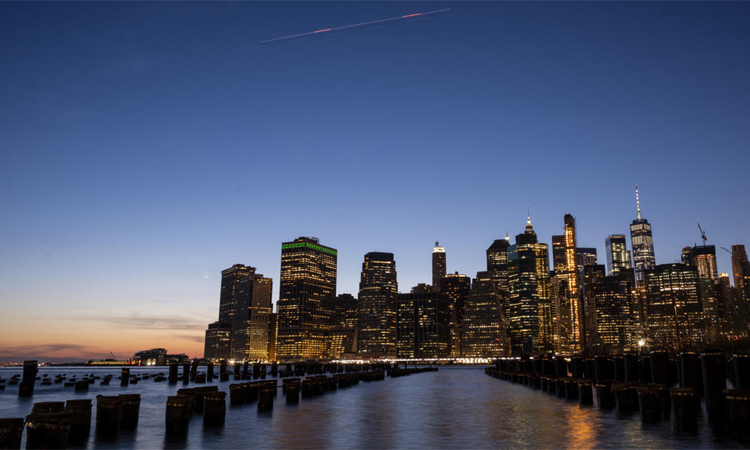News Flash

NEW YORK, Sept 24, 2025 (BSS/AFP) - On a bright September morning, employees stream through the turnstiles and vast lobby of Goldman Sachs' headquarters in the sunlit Battery Park City neighborhood of Manhattan.
More than 9,000 people work at the investment bank's New York head office.
And hundreds of them depend on the H-1B skilled worker visa, recently targeted by the Trump administration for a dramatic overhaul.
A September 19 order by President Donald Trump mandates $100,000 payments from companies for every new hire through the program.
Though the major impact will be on the tech sector -- the largest source of H-1B hiring -- financial companies like Goldman Sachs will also be forced to re-evaluate their practice of hiring from abroad.
- Concentration in New York
In the first two quarters of 2025, Goldman Sachs was the biggest recipient of H-1B visas in New York City. The Big Apple was, in turn, the single location with the most H-1B recipients in all of the United States.
Aggregated at the state level, California and Texas both attract more H-1B visa holders than the state of New York; but there is no one city or town in either of these states that boasts a higher number of H-1B holders than the east coast metropolis.
This concentration of H-1B visas in New York is driven by hiring at Wall Street's financial giants.
Data from US Citizenship and Immigration Services analyzed by AFP shows that four of the top five H-1B visa recipients in New York City are financial services companies: the investment banks Goldman Sachs, Morgan Stanley, and Citigroup, and financial data company Bloomberg.
The other company in the top five is the consulting and professional services firm McKinsey.
Further down the list, and outside of the finance sector, universities such as Columbia and NYU and medical institutions like the Memorial Sloan Kettering Cancer Center and Weil Cornell Medical College also brought a number of H-1B hires to the city.
- Negative impacts
According to 2025 data, H-1B positions filled by the banks skewed towards the more technical side of the finance industry, with many visa holders working in software engineering, quantitative analytics, and data science.
Goldman Sachs did not respond to emailed questions asking how a $100,000 price tag would impact their ability to hire for such roles in the future.
Contacted by AFP with similar questions, Bloomberg and Citigroup declined to comment.
In general, experts believe the fee will lead to a large reduction in applications for the visa scheme, which could have further negative impacts on the economy.
"A visa fee of this scale is likely to drastically curtail the use of H-1B visas," Ethan G. Lewis, Professor of Economics at Dartmouth College, told AFP.
"It will lead to reduced hires of US workers and slower productivity growth, and, longer term, discourage people [from other countries] from going to college and beyond in the US, because many tend to rely on H-1B visas for their first job out of studies."
In the tech industry the announcement of the visa fee has caused consternation, with many entrepreneurs -- among them Trump's ally Elon Musk -- warning that the US will not be able to fill highly skilled roles with only homegrown talent.
Others have speculated that, rather than being offered to American workers, some jobs will simply be outsourced overseas.